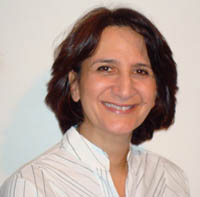Imaging the "New Man": Gender and Nation in Arab Literary Narratives in the Early Twentieth Century
From: Journal of Middle East Women’s Studies
Volume 3, Number 2, Spring 2007
pp. 31-55
Abstract
The emergence of the New Woman in Egypt as a central trope in the nationalist narrative of nation-building and modernity has been the subject of scholarly interest for more than a decade, yet there has been little research on her logical counterpart: the New Man. Although representations of the New Man have always been a subtext in representations of the New Woman, the manifestations and implications of these constructed imaginings within the Egyptian nationalist narrative have yet to be explored. In this article I consider constructions of the New Man through what men say about women, about themselves, and about their conception of ideal manhood. I argue that overt discussions of masculinity ran parallel to discussions of femininity. They might not have dominated the cultural scene like the debates on “the woman question,” but they are revealing of the complexities of gender politics. I focus particularly on literary narratives published in the first four decades of the twentieth century.
http://muse.jhu.edu/login?auth=0&type=summary&url=/journals/journal_of_middle_east_womens_studies/v003/3.2elsadda.html
Volume 3, Number 2, Spring 2007
pp. 31-55
Abstract
The emergence of the New Woman in Egypt as a central trope in the nationalist narrative of nation-building and modernity has been the subject of scholarly interest for more than a decade, yet there has been little research on her logical counterpart: the New Man. Although representations of the New Man have always been a subtext in representations of the New Woman, the manifestations and implications of these constructed imaginings within the Egyptian nationalist narrative have yet to be explored. In this article I consider constructions of the New Man through what men say about women, about themselves, and about their conception of ideal manhood. I argue that overt discussions of masculinity ran parallel to discussions of femininity. They might not have dominated the cultural scene like the debates on “the woman question,” but they are revealing of the complexities of gender politics. I focus particularly on literary narratives published in the first four decades of the twentieth century.
http://muse.jhu.edu/login?auth=0&type=summary&url=/journals/journal_of_middle_east_womens_studies/v003/3.2elsadda.html
